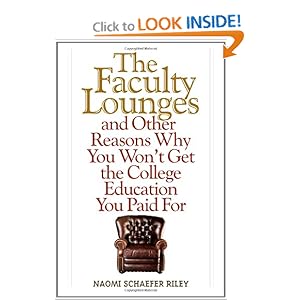Books of interest
Anyone remember this guy at conferences? Maybe he remembers you …
Michael Shermer of Skeptic magazine vs. “turtles all the way down . . .”
UD’s resident journalist, Mrs Denise O’Leary, notes on how Mr Michael Shermer of Skeptic Magazine and Scientific American (etc.) has written on his new book, The Believing Brain: Why Science Is the Only Way Out of Belief-Dependent Realism:
. . . skepticism is a sine qua non of science, the only escape we have from the belief-dependent realism trap created by our believing brains.
While critical awareness — as opposed to selective hyperskepticism — is indeed important for serious thought in science and other areas of life, Mr Shermer hereby reveals an unfortunate ignorance of basic epistemology, the logic of warrant and the way that faith and reason are inextricably intertwined in the roots of our worldviews.
To put it simply, he has a “turtles all the way down” problem:

Why many of our neighbours think what they do, and why they shouldn’t
New book: John Lennox asks, If I believe that the earth is 4.5 billion years old, am I denying the authority of Scripture?
ID-friendly Oxford math prof JohnLennox has a new book out, Seven Days That Divide the World: The Beginning According to Genesis and Science . Can’t imagine which seven days. Blurb:
What did the writer of Genesis mean by ‘the first day’? Is it a literal week or a series of time periods? If I believe that the earth is 4.5 billion years old, am I denying the authority of Scripture? Read More ›
Why does anyone pay attention to one-way skeptic Michael Shermer’s war on the mind’s reality?
Methodological naturalism would have been a science stopper for Isaac Newton
Book offers to settle debates re evolution
Here. Alan R. Rogers tells us in The Evidence for Evolution
According to polling data, most Americans doubt that evolution is a real phenomenon. And it’s no wonder that so many are skeptical: many of today’s biology courses and textbooks dwell on the mechanisms of evolution—natural selection, genetic drift, and gene flow—but say little about the evidence that evolution happens at all. How do we know that species change? Has there really been enough time for evolution to operate?
That Rogers merely means an exploded Darwinism is evident from one of the endorsements: Read More ›
Numbers point to something beyond themselves … but what?
Resources: Free Darwin books from the Darwin lobby
Excerpts for download. Here. Why pay for propaganda, when you can get a whack of it free?
A friend suggests, just for fun: enter “irreducible complexity” in the search box…
on this page, for Eugene V. Koonin’s forthcoming book, The Logic of Chance: The Nature and Origin of Biological Evolution (FT Press, 2011), and see what turns up. From Overview: The book examines a broad range of topics in evolutionary biology including the inadequacy of natural selection and adaptation as the only or even the main mode of evolution; the key role of horizontal gene transfer in evolution and the consequent overhaul of the Tree of Life concept; the central, underappreciated evolutionary importance of viruses; the origin of eukaryotes as a result of endosymbiosis; the concomitant origin of cells and viruses on the primordial earth; universal dependences between genomic and molecular-phenomic variables; and the evolving landscape of constraints that shape Read More ›
Where mellow elides to shallow? Andy Crouch looks at Brooks’ “The Social Animal”
In “Common Grace and Amazing Grace: A Review of David Brooks’s ‘The Social Animal,’” Andy Crouch finds that “Brooks’s portrait of human flourishing lacks the essential elements of rescue and redemption” (Christianity Today, 7/11/2011): Then there is Erica’s brief fling with adultery, her only real moral failure. Erica’s indiscretion could have been a catalyst of self-discovery and transformation, but in Brooks’s story of upper-middle-class well-adjustment, it’s a mere speed bump on the road to a warm, if not passionate, “companionate marriage.” Certainly infidelity, like premarital sex, is not always a Category 5 emotional hurricane, especially for those with abundant social capital. Yet one senses no real indignation. What else would you expect from social animals, after all? Radical commitment just Read More ›
Tenure: How the university became a bureaucracy and how to fix it

In “The Economic Upside to Ending Tenure” (Chronicle of Higher Education, June 19, 2011), Naomi Schaefer Riley goes beyond the usual complaints about tenured lecture room mediocrities to say,
Tenure means not having to worry about having to find new employment in middle age, and that means a lot to professors. As the George Mason University economist Tyler Cowen explains, “In a lot of academia, once you’re over 50 it’s hard to get another job, even if you’ve done well.” He compares it to being a computer programmer, where age seems to be a disadvantage no matter how talented you are. Taking an academic job without the promise of tenure is what Cowen calls “a massive risk.” So there would have to be a lot of money on the front end to make up for it.
In the long term, though, the costs might even out. Read More ›
New book: “Strong hints” of a multiverse mean ours isn’t fine-tuned
As we noted earlier, in “Why the universe wasn’t fine-tuned for life” (New Scientist, 14 June 2011), Marcus Chown reports on physicist Victor Stenger’s “devastating demolition” of the argument that the laws of physics of our universe were “fine-tuned” to foster life, in The Fallacy of Fine-tuning: Even if some parameters turn out to be fine-tuned, Stenger argues this could be explained if ours is just one universe in a “multiverse” – an infinite number of universes, each with different physical parameters. We would then have ended up in the one where the laws of physics are fine-tuned to life because, well, how could we not have?Religious people say that, by invoking a multiverse, physicists are going to extraordinary lengths Read More ›
Another fascinating exercise in getting it all wrong?
File under: “Wrong shakeup sought”
Here, Laura J. Snyder (“Wanted: Another Scientific Revolution”, The Scientist , 2011-05-01) wants a new Breakfast Club of scientist philosophers:
Each of the four men was brilliant, self-assured, and possessed of the optimism of the age: Whewell, who later created the fields of mathematical economics and the science of the tides; Charles Babbage, a mathematical genius who would invent the prototype of the first modern computer; John Herschel, who mapped the skies of the Southern hemisphere and coinvented photography; and Richard Jones, a curate who went on to shape economic science. The four composed what I call the “Philosophical Breakfast Club,” also the title of my latest book, which chronicles the way they transformed the “man of science” into the professional scientist.
The thesis (and book, excerpt here) sounds very interesting. She flags one outcome:
One of the unintended consequences of the revolution wrought by the Philosophical Breakfast Club has been that the professional scientist is now less interested in, and perhaps less capable of, connecting with the broader public, sharing the new discoveries and theories that most excite the scientific community.
Isn’t the situation more like this? Read More ›

